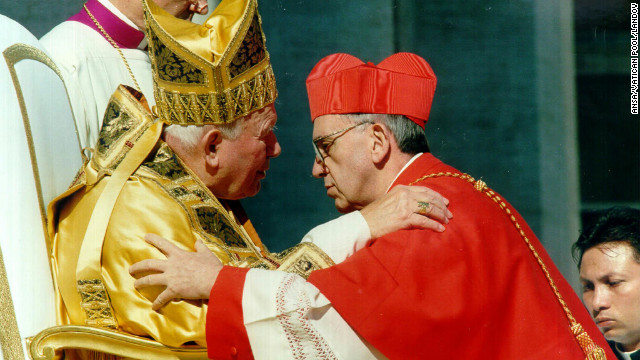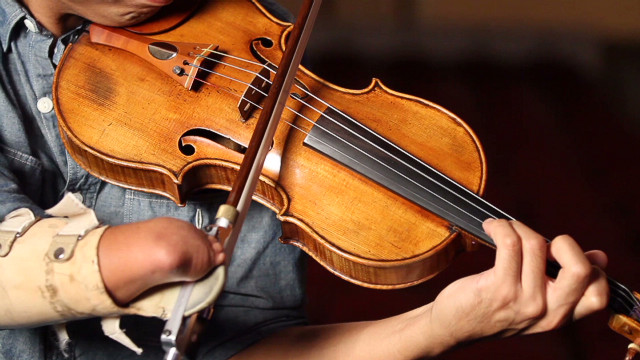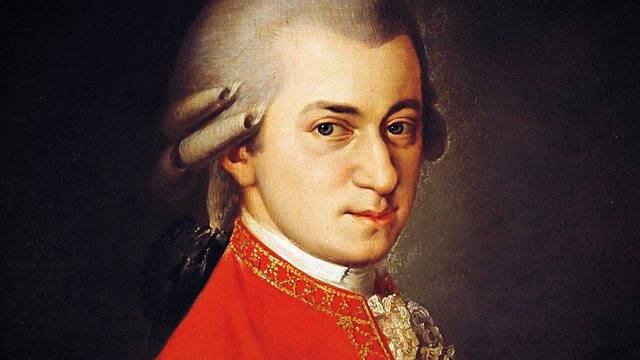Les Misérables
Friday, February 22, 2013
0
comments
{[["☆","★"]]}

Les Misérables is a French historical novel by Victor Hugo, first published in 1862, that is considered one of the greatest novels
of the nineteenth century. In the English-speaking world, the novel is
usually referred to by its original French title, which can be
translated from the French as The Miserables, The Wretched, The Miserable Ones, The Poor Ones, The Wretched Poor, or The Victims. Beginning in 1815 and culminating in the 1832 June Rebellion in Paris, the novel follows the lives and interactions of several characters, focusing on the struggles of ex-convict Jean Valjean and his experience of redemption.
Examining the nature of law and grace, the novel elaborates upon the history of France, the architecture and urban design of Paris, politics, moral philosophy, antimonarchism, justice, religion, and the types and nature of romantic and familial love. Les Misérables has been popularized through numerous adaptations for the stage, television, and film, including a musical and a film adaptation of that musical.
The appearance of the novel was highly anticipated and advertised.
Critical reactions were very diverse, but most of them were negative.
Commercially, the work was a great success, not just in France, but also
in the rest of Europe and the world.

Plot Overview
The convict Jean Valjean is
released from a French prison after serving nineteen years for stealing
a loaf of bread and for subsequent attempts to escape from prison. When
Valjean arrives at the town of Digne, no one is willing to give
him shelter because he is an ex-convict. Desperate, Valjean knocks
on the door of M. Myriel, the kindly bishop of Digne. Myriel treats
Valjean with kindness, and Valjean repays the bishop by stealing
his silverware. When the police arrest Valjean, Myriel covers for
him, claiming that the silverware was a gift. The authorities release
Valjean and Myriel makes him promise to become an honest man. Eager
to fulfill his promise, Valjean masks his identity and enters the
town of Montreuil-sur-mer. Under the assumed name of Madeleine,
Valjean invents an ingenious manufacturing process that brings the
town prosperity. He eventually becomes the town’s mayor.
Fantine, a young woman from Montreuil, lives in Paris.
She falls in love with Tholomyès, a wealthy student who gets her
pregnant and then abandons her. Fantine returns to her home village
with her daughter, Cosette. On the way to Montreuil, however, Fantine
realizes that she will never be able to find work if the townspeople
know that she has an illegitimate child. In the town of Montfermeil,
she meets the Thénardiers, a family that runs the local inn. The Thénardiers
agree to look after Cosette as long as Fantine sends them a monthly
allowance.
In Montreuil, Fantine finds work in Madeleine’s factory.
Fantine’s coworkers find out about Cosette, however, and Fantine
is fired. The Thénardiers demand more money to support Cosette,
and Fantine resorts to prostitution to make ends meet. One night,
Javert, Montreuil’s police chief, arrests Fantine. She is to be
sent to prison, but Madeleine intervenes. Fantine has fallen ill,
and when she longs to see Cosette, Madeleine promises to send for
her. First, however, he must contend with Javert, who has discovered
Madeleine’s criminal past. Javert tells Madeleine that a man has
been accused of being Jean Valjean, and Madeleine confesses his
true identity. Javert shows up to arrest Valjean while Valjean is
at Fantine’s bedside, and Fantine dies from the shock.
After a few years, Valjean escapes from prison and heads
to Montfermeil, where he is able to buy Cosette from the Thénardiers. The
Thénardiers turn out to be a family of scoundrels who abuse Cosette
while spoiling their own two daughters, Eponine and Azelma. Valjean
and Cosette move to a run-down part of Paris. Javert discovers their
hideout, however, and they are forced to flee. They find refuge
in a convent, where Cosette attends school and Valjean works as
a gardener.
Marius Pontmercy is a young man who lives with his wealthy grandfather,
M. Gillenormand. Because of political differences within the family,
Marius has never met his father, Georges Pontmercy. After his father
dies, however, Marius learns more about him and comes to admire
his father’s democratic politics. Angry with his grandfather, Marius
moves out of Gillenormand’s house and lives as a poor young law
student. While in law school, Marius associates with a group of
radical students, the Friends of the ABC, who are led by the charismatic
Enjolras. One day, Marius sees Cosette at a public park. It is love
at first sight, but the protective Valjean does his utmost to prevent
Cosette and Marius from ever meeting. Their paths cross once again,
however, when Valjean makes a charitable visit to Marius’s poor
neighbors, the Jondrettes. The Jondrettes are in fact the Thénardiers,
who have lost their inn and moved to Paris under an assumed name.
After Valjean leaves, Thénardier announces a plan to rob Valjean
when he returns. Alarmed, Marius alerts the local police inspector,
who turns out to be Javert. The ambush is foiled and the Thénardiers
are arrested, but Valjean escapes before Javert can identify him.
Thénardier’s daughter Eponine, who is in love with Marius, helps
Marius discover Cosette’s whereabouts. Marius is finally able to
make contact with Cosette, and the two declare their love for each
other. Valjean, however, soon shatters their happiness. Worried that
he will lose Cosette and unnerved by political unrest in the city, Valjean
announces that he and Cosette are moving to England. In desperation,
Marius runs to his grandfather, M. Gillenormand, to ask for M. Gillenormand’s
permission to marry Cosette. Their meeting ends in a bitter argument.
When Marius returns to Cosette, she and Valjean have disappeared.
Heartbroken, Marius decides to join his radical student friends,
who have started a political uprising. Armed with two pistols, Marius
heads for the barricades.
The uprising seems doomed, but Marius and his fellow
students nonetheless stand their ground and vow to fight for freedom
and democracy. The students discover Javert among their ranks, and, realizing
that he is a spy, Enjolras ties him up. As the army launches its
first attack against the students, Eponine throws herself in front of
a rifle to save Marius’s life. As Eponine dies in Marius’s arms,
she hands him a letter from Cosette. Marius quickly scribbles a
reply and orders a boy, Gavroche, to deliver it to Cosette.
Valjean manages to intercept the note and sets out to
save the life of the man his daughter loves. Valjean arrives at
the barricade and volunteers to execute Javert. When alone with
Javert, however, Valjean instead secretly lets him go free. As the
army storms the barricade, Valjean grabs the wounded Marius and
flees through the sewers. When Valjean emerges hours later, Javert
immediately arrests him. Valjean pleads with Javert to let him take
the dying Marius to Marius’s grandfather. Javert agrees. Javert
feels tormented, torn between his duty to his profession and the
debt he owes Valjean for saving his life. Ultimately, Javert lets
Valjean go and throws himself into the river, where he drowns.
Marius makes a full recovery and is reconciled with Gillenormand,
who consents to Marius and Cosette’s marriage. Their wedding is
a happy one, marred only when Valjean confesses his criminal past
to Marius. Alarmed by this revelation and unaware that it was Valjean
who saved his life at the barricades, Marius tries to prevent Cosette
from having contact with Valjean. Lonely and depressed, Valjean
takes to his bed and awaits his death. Marius eventually finds out
from Thénardier that Valjean saved Marius’s life. Ashamed that he
mistrusted Valjean, Marius tells Cosette everything that has happened.
Marius and Cosette rush to Valjean’s side just in time for a final
reconciliation. Happy to be reunited with his adopted daughter,
Valjean dies in peace.
Character List
Jean Valjean -
Cosette’s
adopted father. Valjean is an ex-convict who leaves behind a life
of hatred and deceit and makes his fortune with his innovative industrial
techniques. He finds fulfillment in loving his adopted daughter
and helping people who are in difficult situations, even when it
means risking his own life and welfare. Valjean adopts pseudonyms
to evade the police and combines a convict’s street smarts with
his newfound idealism and compassion. His whole life is a quest
for redemption, and he ultimately finds bliss on his deathbed.
Cosette -
Fantine’s
daughter, who lives as Valjean’s adopted daughter after her mother
dies. Cosette spends her childhood as a servant for the Thénardiers
in Montfermeil, but even this awful experience does not make her
hardened or cynical. Under the care of Valjean and the nuns of Petit-Picpus,
Cosette ultimately blossoms into a beautiful, educated young woman.
She finds fulfillment in her love for Marius. Cosette is innocent
and docile, but her participation in Valjean’s many escapes from
the law show that she also possesses intelligence and bravery.
Javert -
A
police inspector who strictly believes in law and order and will
stop at nothing to enforce France’s harsh penal codes. Javert is
incapable of compassion or pity, and performs his work with such
passion that he takes on a nearly animal quality when he is on the
chase. He nurses an especially strong desire to recapture Valjean, whose
escapes and prosperity he sees as an affront to justice. Ultimately,
Javert is unable to say with certainty that Valjean deserves to
be punished. This ambiguity undermines the system of belief on
which Javert bases his life and forces him to choose between hypocrisy
and honor.
Fantine -
A
working-class girl who leaves her hometown of Montreuil-sur-mer
to seek her fortune in Paris. Fantine’s innocent affair with a dapper
student named Tholomyès leaves her pregnant and abandoned. Although
she is frail, she makes a Herculean effort to feed herself and her
daughter, Cosette. Even as she descends into prostitution, she never
stops caring for Cosette. She represents the destruction that nineteenth-century
French society cruelly wreaks on the less fortunate.
Marius Pontmercy -
The son of Georges Pontmercy, a colonel in Napoléon’s
army. Marius grows up in the home of his grandfather, M. Gillenormand,
a monarchist. Marius has an identity crisis when he learns the real
reason for his separation from his father, and this crisis sets
him on the path to discovering himself. An innocent young man, Marius
is nonetheless capable of great things and manages both to fight
on the barricades and successfully court the love of his life, Cosette.
M. Myriel -
The
bishop of Digne. M. Myriel is a much-admired clergyman whose great
kindness and charity have made him popular throughout his parish.
He passes on these same qualities to Valjean and initiates the ex-convict’s spiritual
renewal by saving Valjean from arrest and making him promise to
live as an honest man.
M. Thénardier -
A
cruel, wretched, money-obsessed man who first appears as Cosette’s
keeper and tormentor. Thénardier extorts money from whomever he
can, and he frequently serves as an informant to whoever will bid the
highest. His schemes range from robbery to fraud to murder, and
he has strong ties to the criminal underworld in Paris. Blinded
by greed, Thénardier is incapable of loving other human beings and
spends every minute in pursuit of money.
Mme. Thénardier -
M. Thénardier’s wife. Mme. Thénardier is just as evil
as her husband and takes special pleasure in abusing Cosette. In
later years, she becomes her husband’s most devoted accomplice and
is particularly enthusiastic about his schemes to rob Valjean and Cosette.
Eponine -
The
Thénardiers’ eldest daughter. Eponine is a wretched creature who
helps her parents steal, but she is eventually redeemed by her love
for Marius. She proves that no one is beyond redemption, and she ultimately
emerges as one of the novel’s most tragic and heroic figures.
M. Gillenormand -
Marius’s ninety-year-old maternal grandfather. Gillenormand
prevents Marius from seeing his father, Georges Pontmercy, because
he fears that Pontmercy will corrupt Marius. A devout monarchist, Gillenormand
rejects the French Revolution outright and also rejects Pontmercy’s
Napoléonic beliefs. Although Gillenormand’s classist views sometimes offend
Marius, he truly loves his grandson and ultimately does what is
necessary to make Marius happy.
Gavroche -
The
Thénardiers’ oldest son. Gavroche is kicked out of the house at
an early age and becomes a Parisian street urchin. He is a happy-go-lucky
child who enjoys the small pleasures of life and demonstrates unusual generosity
toward those even less fortunate than he is. He is also fierce and
brave, and plays a decisive role in the barricade even though he
does not have a gun.
Colonel Georges Pontmercy -
An officer in Napoléon’s army and Marius’s father.
Pontmercy is severely wounded at the Battle of Waterloo, and mistakenly
believing that Thénardier has saved his life, he asks that Marius honor
this debt. Although we know little about Pontmercy’s personal life,
his politics greatly influence the young Marius.
Enjolras -
The
leader of the Friends of the ABC. Enjolras is a radical student
revolutionary. He is both wild and beautiful. Together with Courfeyrac
and Marius, Enjolras leads the insurrection at the barricade.
Fauchelevent -
A
critic of Valjean’s while Valjean is the mayor of Montreuil-sur-mer
under the assumed name of Madeleine. Fauchelevent becomes indebted
to Valjean when Valjean saves him from a carriage accident. When
they meet again years later, Fauchelevent returns the favor by hiding
Valjean and Cosette in a convent.
Champmathieu -
A
poor, uneducated man who unfortunately resembles Valjean so much
that he is identified, tried, and almost convicted as Valjean. Champmathieu proves
to be too dim-witted to defend himself successfully, revealing the
callousness of the French justice system.
M. Mabeuf -
A
churchwarden in Paris who tells Marius the truth about his father.
Mabeuf and Marius become friends during tough times, and Mabeuf
later dies a heroic death on the barricade.
Patron-Minette -
Actually
four people, Patron-Minette is a Parisian crime ring so close-knit
that its four members—Montparnasse, Babet, Claquesous, and Gueulemer—are
described as four heads of the same violent beast. Patron-Minette
controls all the crime in one section of Paris and assists in the
Thénardiers’ ambush of Valjean.
Felix Tholomyès -
Fantine’s lover in Paris. Tholomyès is a wealthy student
who thinks much less of his relationship with Fantine than she does.
He gets Fantine pregnant and then abandons her as a joke. Tholomyès
is Cosette’s biological father, although the two never meet.
THANK YOU FOR YOUR VISIT, PLEASE COME BACK SOON...
Title: Les Misérables
Written By Kristofani
Hopefully this article useful to you. If you wish to quote either part or all of the contents of this article, please include dofollow links to http://kristianporung.blogspot.com/2013/02/les-miserables_5758.html. Thank you for reading this article.Written By Kristofani





















0 comments:
Post a Comment